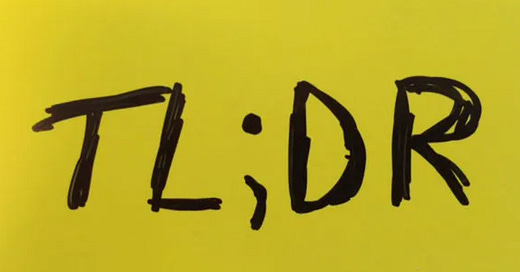I mean that every culture, every time and place, has had “gender nonconforming” people. We can talk about why that is, but that would be a totally different article. There’s some evidence that prenatal hormone exposure in both humans and some mammals can influence gender nonconforming behavior.
Whatever the underlying cause, gender nonconforming people have always existed in every time and place. That’s very real.
What’s “made up” are the multiple and varied ways that different cultures have interpreted the meaning of gender nonconforming people. What’s “made up” are the narratives of whether those people are just fine how they are or whether something is “wrong” with them that needs to be “fixed.” What’s “made up” are the “treatments” in our culture — treatments that are very profitable for a lot of people — for “fixing” our gender nonconforming people.
In our cultural moment, we interpret unhappy gender nonconforming people as “being trans,” which often requires certain “life-saving” “medical interventions” and also requires certain accommodations on the part of society.
The narrative is that there is something wrong with them, or something tragic about being a feminine man or masculine woman. If everyone in a society believes this, then the people who are unhappy in their own bodies will also believe this narrative and demand — indeed, believe they “need” — medical interventions, which people in other times and places lived their lives quite happily without.
Gender dysphoria is completely sincere on the part of the sufferers, but it’s not something that occurs in every time and place — so it’s also a cultural creation.
In other cultural contexts, for example Samoa’s (an example I use at length in the longer article), feminine men are just … allowed to be feminine men. They have their own niche in society. Nothing is perceived by society (or by the feminine men themselves) as “being wrong” with them, medically or emotionally. There is no suicidality crisis in Samoan society among their feminine men. There is no “transition or die.” There is traditionally no “gender dysphoria,” no emotional distress. They fill their cultural niche, they live their lives, and that’s that.
Why does this matter? Why does it matter that “trans is something we made up,” such that our gender nonconforming people’s lives are quite different from Samoans’?
It matters because if we were to really, really understand that our 21st century Western version of “being trans” is something we made up culturally, the rest of the debates on this topic fall away into nonsense.
For example, at what age can someone decide to remove their healthy breasts? At no age, really, should society sanction surgery — and the complications and consequences of it — for removing healthy body parts for no medical reason. It’s stupid, it’s unethical, it doesn’t solve a medical problem, and it creates medical problems in a certain number of people who have the surgery. There’s no value to it.
Another example: If “being trans” is a cultural creation, in what cases do we give really powerful, medically disruptive drugs to stop puberty in otherwise healthy adolescents? Duh, never.
If people are deeply distressed by their bodies, what should we offer them? We should offer them compassion, mental health services, support groups. We shouldn’t offer them “affirmation” that something is indeed wrong with them that needs to be fixed, because that’s simply false.
The outcome for gender noncomforming people is vastly different in a cultural context in which society treats them as if they’re A-ok and perfectly accepted and emotionally healthy and can be who they are (traditional Samoa) and a cultural context in which society treats them as if there’s something wrong that needs to be fixed or else they’ll kill themselves (21st century West).
The result in traditional Samoa was happy, functional people. The result in the 21st century West is miserable, fragile (and increasingly medically and emotionally damaged) people. Which outcome is better?
We completely, completely created this phenomenon of “being trans.” We can un-create it.
If you’re intrigued by this idea — or even if you disagree and want to engage more with it—I invite you / encourage you to read the longer piece, even though it takes a little time to get through, and let me know what you think.





"Gender dysphoria is completely sincere on the part of the sufferers, but it’s not something that occurs in every time and place — so it’s also a cultural creation." This is nothing short of brilliant. It's clear, succinct, and revolutionary, all at the same time. I aspire to be able to make sentences like this.
It's revolutionary because the hidden assumption that underlies most discussion of the malady is that it's somehow *biological* in its origin, rather than cultural. As your argument makes clear, the problem is the imposition of gender stereotypes, not an individual's predispositions or temperament.
Fantastic article. Thank you.
I cannot say enough regarding how cogent and thoughtful your original article is. I really appreciate the cultural and historical perspective you offer, which makes your framing so compelling. When dealing with such a phenomenon, one would expect it to be universal, no? If not, then it can't be innate or grounded in reality. It seems so obvious now, but that's just testament to how effective your explication is. I wish your article and ideas received more widespread attention. I have yet to see anyone else making the same arguments, at least not as cohesively as you have